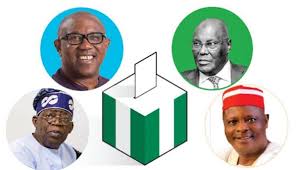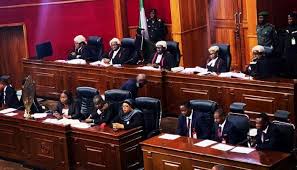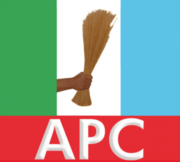By Tunde Olusunle
Monday July 24, 2023 marked the 70th birthday of the renowned scholar, teacher, theorist, journalist and author Chidi Amuta. As a student of literature, my first “encounter” with Amuta was during my postgraduate studies courtesy of his first book of literary criticism Towards a Sociology of African Literature, released in 1986. I would later engage with Theory of African Literature: Implications for Practical Criticism also written by him and published in 1989. Amuta also wrote Prince of the Niger: The Babangida Years in 1992. He has availed the reading public with selections from his humongous mass of media treatises with his book Writing the Wrong an intimidating 1000-page compendium published in 2014.
I have read Amuta voraciously beginning from his contributions to The Guardian which was established in 1983. He was in the critical core of scholars who invested Nigeria’s contemporary media with noticeably refreshing rigour, scholarship, style and flair, with the outset of The Guardian. That generation of writers were those you always wanted to read, study and be inspired by. Those early greats at The Guardian included Patrick Dele-Cole, Stanley Macebuh, Yemi Ogunbiyi, Femi Osofisan, Olatunji Dare and Edwin Madunagu. There were also Chinweizu (Ibekwe), Onwuchekwa Jemie, Sully Abu, Odia Ofeimun, Sonala Olumhense, Eddie Iroh, Ashikiwe Adione-Egom, Andy Akporugo, Godini Darah, Ted Iwere, Dapo Olorunyomi, among others. There were also seasoned media technocrats like Lade Bonuola, Femi Kusa, Emeka Eluem-Izeze, Ama Ogan, Dupe Ajayi, Juliet Ukabiala, Kingsley Osadolor, Ben Tomoloju, Doyin Mahmoud and a host of others. The Guardian seemed to have poached the cream of Nigerian academics and media practitioners from the universities and older publications!

It was for me a dream come true when I eventually met Amuta at the Daily Times of Nigeria Plc, following my employment by Ogunbiyi. He had been appointed Managing Director of the organisation by Nigeria’s former military President, Ibrahim Babangida, in 1989. Elsewhere, I have shared the uniqueness of my experience of my first ever meeting with the media mogul and my subsequent adoption by him. As I rounded up postgraduate studies at the University of Ilorin, I continuously “harassed” my uncle, Albert Anjorin, Emeritus Professor of Pathology, to introduce me to Ogunbiyi. Both men were students of the University of Ibadan and belonged to a few extracurricular associations. We eventually travelled together from Ilorin to Lagos to see Ogunbiyi. The erstwhile Daily Times chief asked me a question: “Tunde, your uncle tells me you are specialist in Literature and English. What experience do you have to contribute to the success of this organisation?”
I try to be as well prepared as possible and on this occasion I just pulled out a file from my bag. Ogunbiyi flipped through and saw articles and interviews I had previously contributed to The Guardian, Daily Times and The Herald. They included full page stuff on literary monoliths like David Cook, Zulu Sofola, Oludare Olajubu, Niyi Osundare, Obafemi and so on. Ogunbiyi looked up to me from the file before me: “You are the Tunde Olusunle who has been writing all of these?” I answered in the affirmative. Ogunbiyi promptly summoned his Secretary. “Please get me the GM.””Onyema,” he requested. Onyema Ugochukwu was functioning as General Manager of Times Publications Division, (TPD). He joined us in minutes. “Onyema,” Ogunbiyi began: “I just got you a real literary scholar here fresh from the University of Ilorin. Please give him a letter of appointment immediately!” Thus began my sojourn in Daily Times.
Ogunbiyi came along to the Daily Times with quite a number of professionals from The Guardian when he exited the venture. Amuta, Darah, Osofisan, Ndaeyo Oko, Afam Akeh, Dapo Adeniyi, Ejiro Onobrakpeya, Sam John, Edwin Baiye, were some of those Ogunbiyi migrated with. Amuta was Chairman of the Editorial Board of the Daily Times, Darah his deputy. Members of that Ogunbiyi era Editorial Board included: Kayode Soremekun, Omar Farouk Ibrahim, Ngozi Anyaegbunam, Al Bishak, Ayo Olukotun, most of whom joined the organisation at Ogunbiyi’s prodding. His friends from their days in the university notably Osofisan came around from time to time. Osundare equally stopped by at least on one occasion and applauded Ogunbiyi for the renaissance he brought to be in the organisation in an article he titled “The Ogunbiyi Phenomenon” published in the Newswatch magazine edition of March 9, 1992, where he was a columnist.
The new-look Editorial Board was supplemented by a very cerebral, experienced and professional core inherited from the existing order in the organisation. These included Ugochukwu, Femi Sonaike, and a select few Daily Times insiders. In terms of quality and diversity of manpower, the Daily Times ranked neck to neck with The Guardian which has prided itself as the “flagship of Nigerian journalism” since its inception. The university tradition of dialogue and engagement flowing over from the faculty to the staff club, took root in the new order as the lengthy and luminous corridor of TPD regularly broke into talkshops, giggles and guffaws. Daily Times, the newspaper colossus which was established in 1926, breathed a refreshing new life. Away from the denigrating tags of “obituary newspaper” and “government mouthpiece” respectively, the revamped Daily Times hallmarked editorial independence and enhanced believability on the newsstands.
Being southpaw conferred some uniqueness on Amuta. He earned a first class in English back in 1979, going all the way to his doctorate breaking new research grounds in literature and literary theory on his trail. You could imagine my eternal delight when as a “Staff Writer” straddling the features and literary departments of the Daily Times, I was called up to collaborate with Amuta to put together a special edition on “Achebe at 60.” Holding in my hands a copy of the Sunday Times of November 11, 1990, my name as coauthor with Amuta of that three-page
tribute titled “Achebe: Eagle above Seasons,” was one of the happiest days of my career!
Much as I was officially in the features department, I was subsequently co-opted to join in executing “special assignments” bothering on literature and the arts. I collaborated for instance with Harry Garuba in producing the special edition on the Association of Nigerian Authors, (ANA) when the body marked its 10th anniversary in November 1990. Garuba’s essay was titled: “Legions and Languages: A toast to ANA at 10.” My addendum was headed “Celebrating a Literary Legacy” I also helped out in the arts department where Akeh and Adeniyi dutifully produced the Times Review of Ideas and the Arts. The experiences aggregated from these exertions were immensely beneficial to my choice of a topic for my doctorate degree dissertation and my research work several years after.
I have studiously followed Amuta’s trajectory thereafter as he made a first stop at Tanus Communications with Ogunbiyi. In a very brusque and unthinking December 1990 move, Ogunbiyi was removed from his brief by the Babangida government. Ogunbiyi’s ouster contributed largely to the eventual unravelling of the erstwhile newspaper octopus. Things fell apart and the centre never held together again, post-Ogunbiyi. In solidarity, Amuta joined his longtime friend to set up the new venture, functioning as Executive Director. He also featured prominently at Post Express newspapers where he served as Managing Director.
Macebuh whose contributions to the development of Nigeria’s mass media has not been exhaustively studied, was the initiator of the Post Express project. The newspaper unfortunately suffered the “stillbirth” syndrome which strangulated many Nigerian publications as they were respectively asphyxiated trying to catch fiscal oxygen in a suffocating socioeconomic environment. Amuta, Chief Executive of Wilson and Weizman Associates a public relations consultancy, is more contempraneously associated with USAfrica a very authoritative online news medium. He also continues to maintain a regular column in Thisday. I felicitate heartily with an inspirational figure as he joins the club of septuagenarians. He is one star boy who has survived Nigeria’s unending tempests, even as I wish him many more years of service to knowledge, culture and the media.
Tunde Olusunle, PhD, poet, journalist, scholar and author is a Member of the Nigerian Guild of Editors, (NGE)



